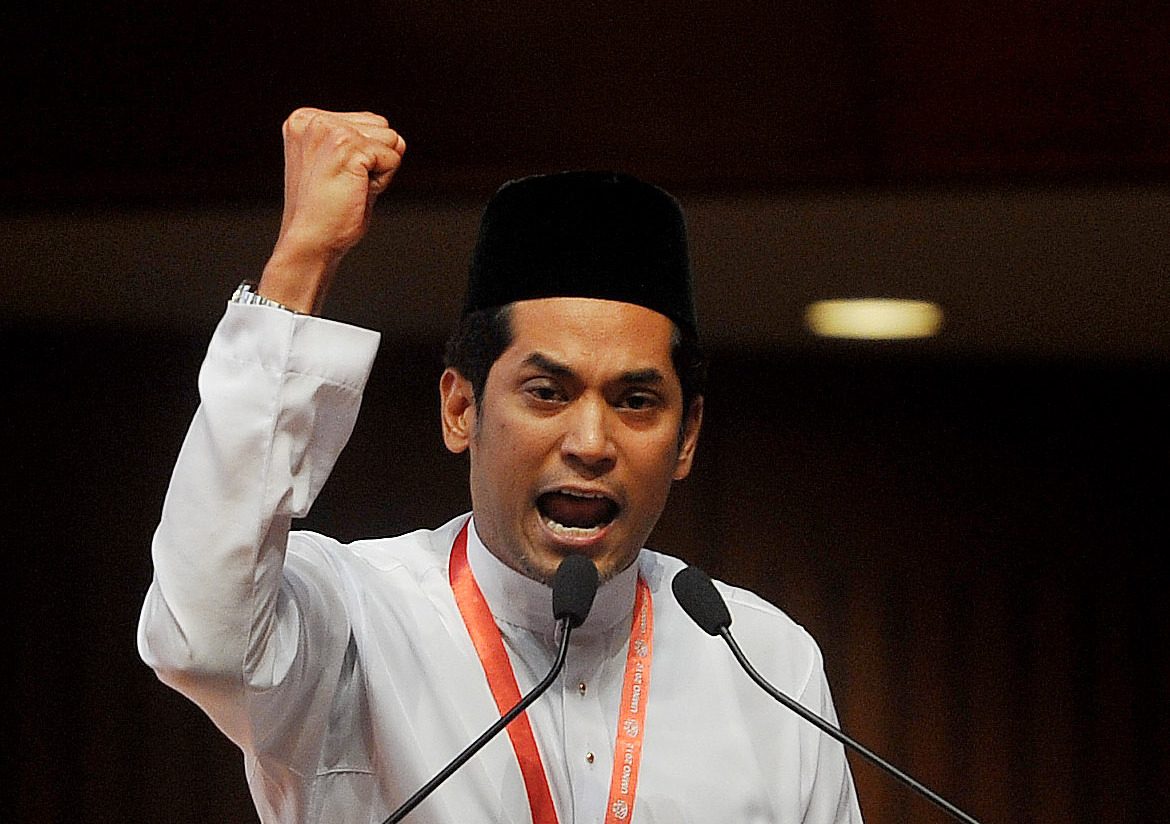Stop Telling Malaysian Women that We’re Too Sexy
 Thirsty for JUICE content? Quench your cravings on our Instagram, TikTok and WhatsApp
Thirsty for JUICE content? Quench your cravings on our Instagram, TikTok and WhatsApp
Sisters out there! This year’s Women’s Day, Khairy Jamaluddin (Malaysian politician, Youth and Sports Federal Minister) stated his aspirations dedicated to all the woman out there. He talked about his wishes that every woman would be proud of to know:
“By 2050, Malaysia is no longer a patriarchal and misogynistic society that objectifies women and focuses more on how she should look and what she should wear, rather than the content of her character.”
“By 2050, no one should think that it’s fine to make crude, suggestive remarks about women, completely violating their dignity. No one should be stupid enough to suggest that sexual harassment or crimes are the fault of the woman for what they wear.”
“By 2050, I want a society that values our female athletes for their sporting achievement and not obsess about what they are wearing.”

But… don’t be too overjoyed yet, my girls. Khairy’s aspirations of fairness and justice for women seem to be farfetched as of now. We can almost say that his dreams have been broken into shards. Just recently, the AirAsia stewardess uniform has now become a topic for parliament.

As reported by The Straits Time, UMNO Division Chiefs Senator Abdullah Mat Yasim and Senator Megat Zulkarnain Omardin claim that the way AirAsia stewardesses are dressed is ‘disrespectful’ and may be misleading to tourists in regards to their impression of Malaysia as an Islamic country. The uniform is addressed as being provocative, seen by MPs as being overly sexy.
A lot of Malaysians, specifically female, are disgraced if caught wearing ‘promiscuous clothing’ (think sleeveless tops, crop tops, shorts and mini-skirts, or tops showing lacy brassier straps, boob tubes). But why?

Living in Malaysia, we remain in a still developing and advancing country, rooted by its conservative nature and religious pursuits. With the latter, for instance where women have to wear hijab to veil herself, there’s an understandable reason for what’s perceived as modesty. For other Malaysians of other races and beliefs, or even Muslims who make a conscious choice to remain unveiled, what is there to constrict what a woman wants to wear?
To tell a woman what to wear is in itself an unwritten rule and therefore rendered as a social construct. By our society’s standards, a female that projects a ‘sexy image’ is a whore and loses her credibility, reputation, and self-worth.
It’s as if our attire is our identity. Well, that is illogical to a certain extent (conflating uniform and identity as one), say, for example, does a girl who wear her brother’s clothes is now considered a male? That sounds absurd (that is, if that’s not the gender identity they chose to go by), which is exactly where this debate on female clothes and her sexual tendencies moves along.

As females, we are always told to ‘dress properly’, but really, how shall we draw the line of ‘proper’? We acknowledge the dress codes in formal places like an academic institution or a workplace, which pertain to professional work reasons. Even in sacred places for worshipping, we understand the importance of covering up.
Otherwise, in other occasions of going out, there isn’t any reason to dress in a ‘proper’, formal way. The term ‘proper’ here refers to society’s perception of how a decent and modest woman shall present herself, but women themselves, more often than not, don’t get to dictate their own idea of propriety.
A woman in ‘skimpy clothes’ doesn’t equate to a person thirsty for attention or the male gaze, or someone who sleeps around with many sexual partners and is shallow minded or hollow within. Admittedly, there might be an argument to be made that this conflation of identity with outward appearance could be due to the way prostitutes are often dressed. But this does not apply to every female, not all women wearing ‘sexy’ clothes are sex workers and not all sex workers wear skimpy outfits. There is no causation in this correlation.

Who am I wearing it for? Some people may ask this to a woman when she chooses a ‘revealing’ outfit to wear on a particular day. Well, first of all, as a woman, I can say that we don’t wear something to show it for someone or a group of people. Being a woman myself, I like to choose my outfit as it reflects how I’m feeling. And trust me, girls, I understand the feeling of trying to just wear what we want, to not be judged. My image as a woman must not be constrained by a certain way I should dress.

Of course, clothing oppression is a big issue in Malaysia. But we don’t often talk about it. It’s almost as if we’re silenced, and it’s considered a sensitive subject that should not be brought up.
Sometimes, this repression of wearing whatever we want can start from our own family, our next to kin. Yes, we’re talking about your parents here, girls. We can validate that it’s an issue, such as a 22-year-old feeling shackled by her parents by writing a letter seeking for help. “Of course, my family does not approve of skimpy outfits,” she says in the letter.
Despite our parents’ good attempts and intentions to ensure our safety, this still suggests a lack of concern for our confidence with our bodies. By stopping us from wearing certain clothing, we may then grow ashamed of what we have. Parents also argue that clothes can lure rapists, but then again women perceived as dressing provocatively and seductively should not be a reason for any kind of sexual violation. We should not be ashamed of our bodies, girls.

To further add on, slut shaming (specifically, in this case, the act of negatively associating dressing to sexual activity) can be rife within the family too. From the glances and disrespectful remarks our parents direct to us when seeing a lady in revealing clothes walk past to their casually telling you that you’re too heavy to be wearing such clothes, it gives the impression that there are restrictions to what a woman can wear. This abhorrent impression is heavily reinforced by our dearer elders who, for whatever reasons, have the rights to decree what is and what’s not appropriate.
Yes, girls—what we wants to wear is ultimately our choice. Earlier this year, a 12-year-old was expelled from a chess competition for wearing what was deemed ‘too sexy’ of a dress (it’s not!). Society, men in particular, should not dictate ways in which a woman could and should dress. The liberty for a woman to choose what she wears is an autonomous one. Women should be seen as her own entity whose whims aren’t guided by outside parties. No double standards should be set.

Putting all circumstances and reasons to think otherwise, it must be noted that these women may just be celebrating their bodies, being confident to show off their curves and skin. We can’t just stray away from sexuality. Female sexuality is an innate nature. It is hard to be comfortable with our bodies if we’re prohibited from showing it. And especially if hiding our sexuality is a form of decency in public eyes.
This article only debates around the female and male gender, but is not an attempt to overlook others outside this gender binary.

 Get Audio+
Get Audio+ Hot FM
Hot FM Kool 101
Kool 101 Eight FM
Eight FM Fly FM
Fly FM Molek FM
Molek FM